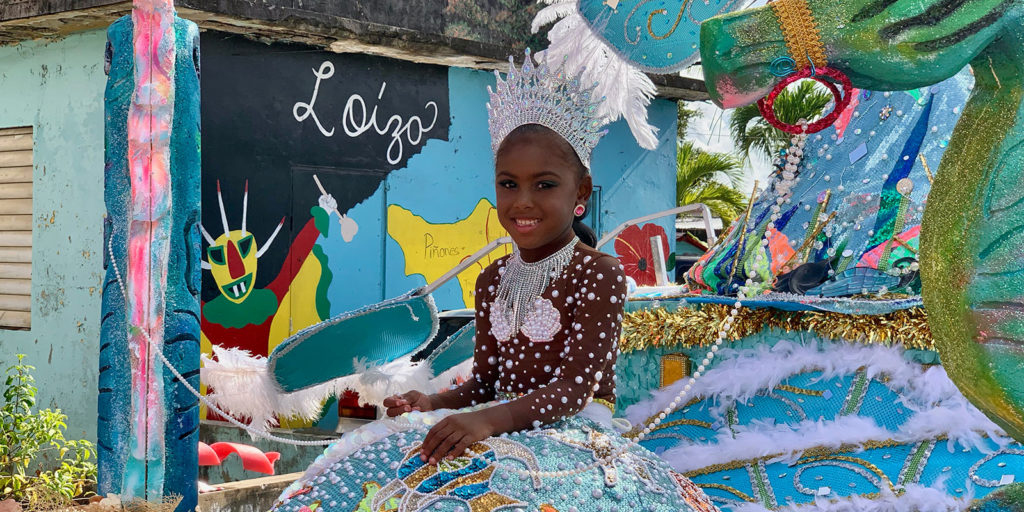St. James (Santiago Apostol) is the patron saint of Loíza, Puerto Rico.
Loíza is one of Puerto Rico’s most African towns. It’s just east of the capital San Juan and the next county Carolina. After you drive through the popular beach area of Piñones, you cross Puerto Rico’s legendary Loíza River and then you are in Loíza. There’s a bridge now, but the crossing used to be by ferry.
La Fiesta de Santiago Apostol (St. James Festival) is one of Puerto Rico’s most beautiful fiestas patronales (patron saint festivals). These are small town carnivals which are common throughout Puerto Rico and across the Latin world, all year long. Some of our New York parade traditions come from this.
In the Caribbean way, the St. James festival blends African and Spanish culture into something wonderful. St. James is also the patron saint of Spain.
We’re going to write more about this, but it’s worth watching the documentary made in 1949 by Ricardo E. Alegria of the University of Puerto Rico. Alegria was the first academic to study and document Puerto Rican traditions.
In its traditional form, the festival is a highly structured sort of passion play that is typical of Spain, but this is a Puerto Rican version of it.
Loíza’s St. James Festival is nothing like this today, but these are the roots (or maybe it is the same, but I didn’t get to see enough). These are also the roots of salsa music and dancing. Really this is a remnant of the African roots of Caribbean culture, and the Caribbean roots of African-American culture.
African culture is very strong. It starts with African culture in Africa. In the Caribbean, it’s one step removed and blended with the last colonizer’s culture. You might say it’s Afro-Caribbean culture because it is African, but not exactly the same. It’s blended.
New Orleans is a Caribbean city (as is Veracruz, Mexico). New Orleans Congo Square was the beginning of African-American culture in the United States. That culture was Caribbean.
This third generation blended with Anglo-American culture into all the incredibly diverse popular culture of the United States. Ragtime, the blues, jazz, gospel, country, swing, rock, salsa, hip-hop, reggaeton and Latin trap are all flowers of these Afro-Caribbean and before them, African roots.
The Loíza carnival is not for everyone because it’s very Black and very country (pueblo). You have to be comfortable with all that. But if you are, the best place in the United States to connect with our African roots is Loíza, Puerto Rico.
Yemayá

The young lady is dressed as Yemayá, the goddess of the sea in parts of West and Central Africa. If you need cultural equivalence to understand, she is the Virgin Mary or Mother Earth in the form of a mermaid (La Sirena). Yemayá is mother.
This young lady threw me some beads, just like they do at Mardi Gras in New Orleans. As a traveler, I don’t keep things, but I will keep those carnival beads until my last breath.
Yemayá oh-oh-oh Yemayá…Aguanile…
